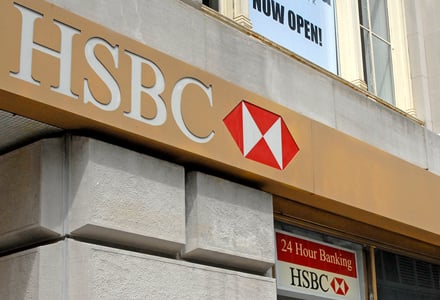The Bank of England raised the base interest rate by 50 points: from 1.25 to 1.75 percent. It was the biggest increase in UK interest rates since 1995. A necessary decision, according to BNR economist Han de Jong.
“That is also expected to increase,” he said. It was also the sixth time in a row the Bank of England raised interest rates. Small first steps, and now bigger steps. They’re doing it because inflation is on the rise, and they want to do something about it.’
Read also | CBS: inflation above 10 percent for the first time since 1975
However, De Jong believes that the increase in interest rates will not be able to reduce inflation that continues to increase. “If you look at how inflation is in the UK, there’s not much difference. While they have started raising interest rates much earlier. However, we assume that monetary policy and changes in interest rates only have an optimal effect two years after starting. So maybe this is too short a period. But if you compare the situation with elsewhere, it’s actually pretty much the same everywhere.’
Rising inflation
De Jong was referring to the past year, where there were various reasons for rising inflation. ‘Initially, inflation rose due to logistical disruptions in the world and rising prices of goods and energy. Then everyone screamed that it was only temporary and there was nothing to do. But now you see that inflation is spreading throughout the economy. It also happens more and more that inflation is also generated in the economy itself. That naturally provoked a reaction from the central bank.’
Read also | ABN AMRO predicts higher prices due to expensive energy
He also drew another parallel with the Netherlands: unemployment. ‘Just like here in England it’s very low. Wage growth has picked up somewhat and consumer confidence – just like us – is at a record low.’
Future
The Bank of England also did not outline a very positive future, according to De Jong. ‘I found them very outspoken. Usually central banks are still cautious, especially when it comes to bad news. But what they predict, for example, is that inflation will peak above 13 percent in October, compared to just 9.4 in June. So that’s the point. In addition, they say that high inflation causes disposable incomes of households to shrink, which means that consumer spending should decrease. And if spending falls, you enter a recession. And they explicitly say that the recession will start in the fourth quarter and will last for a year.’
Read also | Pension expert: can’t keep up with inflation for pension funds
And the figures from the Bank of England appear to be correct, according to De Jong. “The story makes a lot of sense, and I’m a little concerned that the story of a mild short-term recession is just wishful thinking.”
Europe
But, what will the situation in Europe be like? Here too, De Jong thinks there is reason to be worried. ‘The situation is very similar. If the Bank of England is right and the UK enters a recession, then we won’t let it dry either. However, they say that the situation is uncertain and that there are plausible scenarios that are more positive and more negative.’

“Incurable alcohol fan. Proud web practitioner. Wannabe gamer. Music buff. Explorer.”







